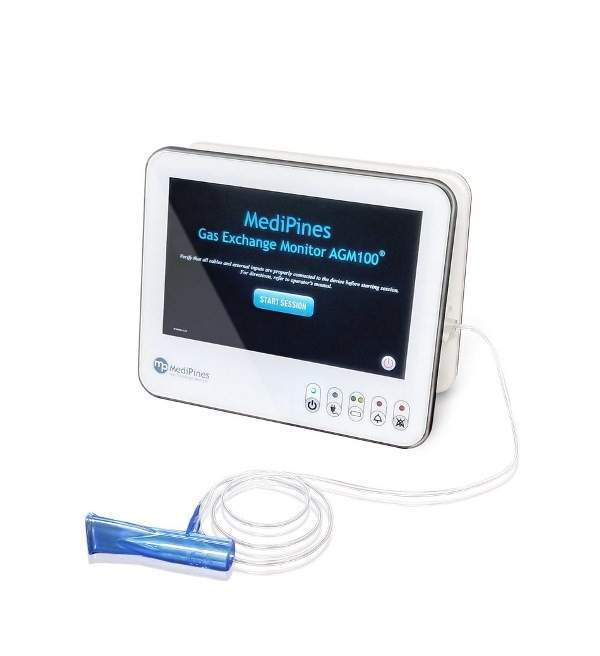
The MediPines Gas Exchange Monitor offers clinicians with real-time pulmonary parameters and insights to support rapid triage and treatment decisions for respiratory conditions.
It is claimed to be the first technology to integrate a complete set of respiratory parameters and indices analyzed from a patient’s normal breathing samples in a simple, easy to administer breathing test within a few minutes.
The new device is a non-invasive monitor that enables clinicians to provide a point of care information on pulmonary gas exchange, which previously was available only through invasive or complicated methods.
The company said that the MediPines Gas Exchange Monitor measures critical parameters including respiratory rate, oxygen saturation, pulse rate, respiratory quotient and end-tidal CO2. The monitor is conveniently packaged in a single, portable light weight device and provides novel indices like oxygen deficit.
MediPines CEO Steve Lee: “This is a result of years of scientific and medical research working with the world-renowned respiratory physiology team led by Dr. John B. West.”
In the US, more than 33million patients suffer from respiratory diseases and more than 350million patients across the globe. The patients suffer from chronic to acute respiratory issues ranging from Chronic Obstructive Pulmonary Disease (COPD) to asthma.
Lee added: “This device is a significant step forward in advancing respiratory medicine, providing hospitals with vital respiratory care measurements to aid clinicians in diagnosis and treatment, immediately at the point-of-care.”
In 2017, Medipine has conducted clinical trial to demonstrate feasibility for non-invasive gas exchange concept. The Non-invasive way to measure the degree of impaired gas exchange has been proposed and published with supporting study results.
The results are published in CHEST, a peer-reviewed medical journal covering chest diseases and related issues including pulmonology, cardiology, breathing, airway diseases and emergency medicine.






